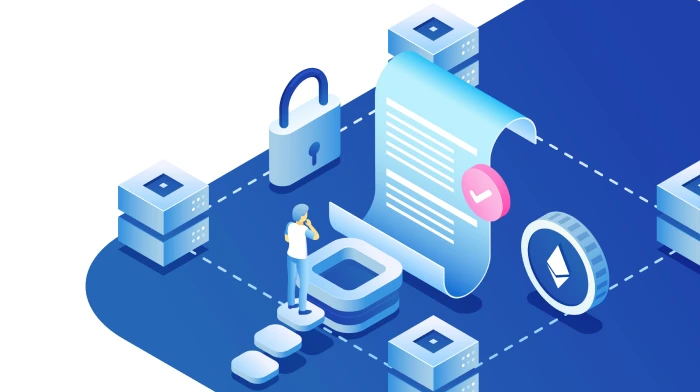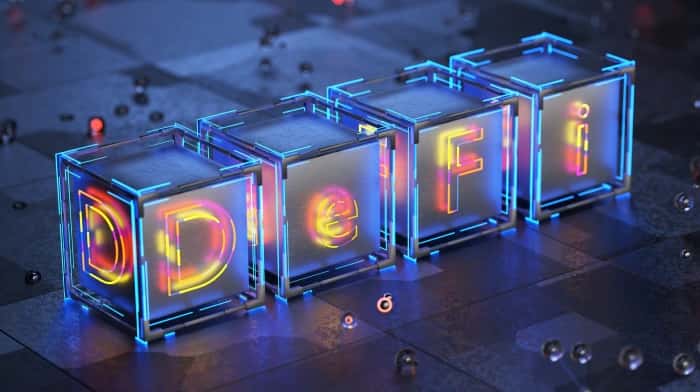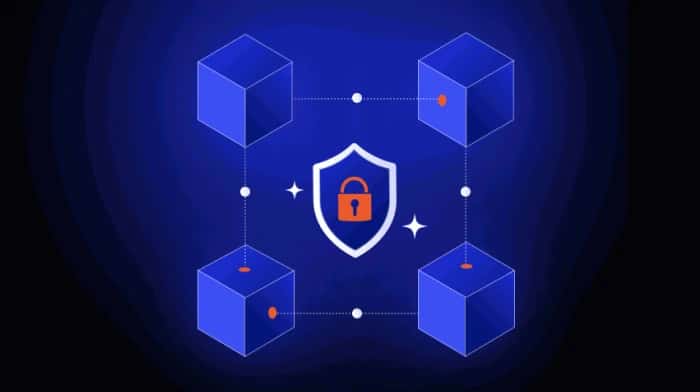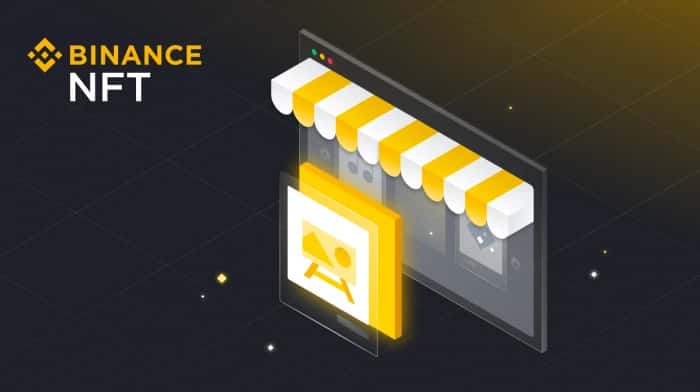
Introduction
Smart contracts are a part of blockchain development. They're changing the way we think about traditional contracts.
For a time contracts have been the backbone of our personal lives providing a sense of structure and dependability across different industries. With the rise of blockchain technology smart contracts have emerged as a game changer greatly improving the security and safety of transactions.
These digital agreements do more than just facilitate transactions. They make applications more accessible and create a secure online environment.
Essentially smart contracts are like self contained rules that automatically enforce the terms that are programmed into them. They don't need any intervention to work which makes them a powerful tool for doing business online.
The advent of automated execution has done away with the need for intermediaries bringing a level of trust to transactions that was previously unheard of. With every action being recorded on the blockchain the entire process is transparent and tamper proof.
This in depth look at contracts will cover the basics of how they work, their advantages and where they're being used in the world as well as the essential elements that make them tick the challenges they currently face and what the future might hold.
The Evolution of Smart Contracts
The concept of contracts has revolutionized the way we think about and enter into agreements. But to really grasp how we got here we need to go to the beginning of blockchain technology.
The introduction of contracts was a game changer marking a turning point in the evolution of this technology.
Blockchain was first developed as a way to support currencies. It also laid the groundwork for a new kind of transparent and decentralized record keeping system. It wasn't until smart contracts came along though that the technology really started to show its potential.
The Ethereum Revolution
The year 2013 was a turning point. That's when Ethereum was introduced, a blockchain platform that was capable of executing contracts.
The person behind Ethereum, Vitalik Buterin had a vision that went beyond facilitating currency exchanges. By building a programming language into the blockchain Ethereum made it possible for people to create and use contracts.
This was a breakthrough since the language was Turing complete meaning it could handle any task that a regular computer could.
A major turning point came when blockchain technology began to shift its focus from transactions to a wide range of decentralized applications that use self executing code. This change opened up possibilities for the technology.
In the years that followed a huge number of platforms emerged that were specifically designed to host contracts. Each of these platforms had its features and capabilities which led to a lot of innovation and experimentation.
As a result smart contracts started being used for more than transactions and their potential uses expanded significantly.
Role in Decentralized Systems
Smart contracts play a role in systems that use blockchain technology. These decentralized systems are about cutting out the middleman and letting people interact directly with each other.
Smart contracts are a part of making this vision a reality as they allow for transactions to happen automatically without the need for middlemen. This is a deal because it means that people can trust the system to work fairly even if they don't know each other.
Transparency and Security Benefits
One of the benefits of contracts is that they're completely transparent. When a smart contract is set up on a blockchain, all the details of the contract and any transactions that happen as a result are recorded forever and made visible to everyone involved.
This openness helps build trust and makes it much harder for people to get away with behavior which's a big problem in a lot of traditional systems that are controlled by a central authority.
The fact that smart contracts are decentralized also makes them more secure and better able to withstand problems.
This setup also ensures that the system can keep running even if some nodes go down or are compromised. The impact of contracts in systems is profound leading to more open, secure and reliable digital environments.
Decentralized blockchains offer a marked improvement over models where a single weak link can bring down an entire system. With contracts the execution is spread out across a network of nodes making it much harder for a failure or attack to cause a major disruption.
How Smart Contracts Work
So how do smart contracts work in the context of blockchain development? At their core smart contracts are self contained programs that run automatically when certain conditions are met. This automation is what makes them so powerful as it allows for efficient execution of digital interactions.
The way we do business is changing in a way. It's not just about making transactions more efficient. About creating a system where trust is built into the code itself than relying on middlemen.
In todays age smart contracts are a part of this shift. They're precise reliable and allow parties to enter into agreements with a level of security and efficiency. By cutting out the intermediaries we can save money reduce the risk of error and speed up the process.
Code Execution and Automation
At the heart of contracts is the idea of code execution and automation. Unlike contracts which rely on people to interpret and enforce them smart contracts run on code. This means they can execute themselves without needing anyone to step and make it happen.
These digital agreements are set up to automatically carry out tasks when certain conditions are triggered. The blockchain serves as an secure record keeping system making sure all parties can see and verify the code being executed.
This automation makes things run smoothly and cuts down on mistakes and disagreements that can come from doing things. When it comes to contracts their ability to execute on their own is a game changer for efficiency and trustworthiness.
Key Components
There are a parts to smart contracts that make them work well and keep them secure:
- •They have conditions and logic built in
- •They use digital signatures to add an extra layer of security
- •This way peoples identities and intentions are protected
- •The transactions themselves are protected
Because these contracts are integrated with blockchain technology, every step of the process is recorded permanently and publicly which helps build trust and makes everything more transparent.
Conditions and Logic
The way a smart contract works relies on the conditions and logic defined in its code. These conditions are basically "if statements" that control the contracts actions when certain criteria are met.
To make sure the contract works as intended it's crucial that the conditions and logic are precisely coded. For instance the contract might release funds once a task is completed or transfer ownership of an asset.
In either case it's essential that the conditions are clear and accurate for the contract to succeed.
Digital Signatures
Security is a priority in contracts and digital signatures are key to ensuring the authenticity and integrity of the parties involved.
When people take part in a contract they need to provide a signature. A kind of cryptographic proof that shows who they are and what they intend to do.
This signature helps to secure the transaction and creates a record on the blockchain that can't be altered. It's like an audit trail allowing everyone to see what actions have been taken within the contract.
Blockchain Integration
The way smart contracts work together with blockchain is really a two way street. The blockchain acts as a ledger keeping a record of every transaction and contract thats carried out.
This means that all the details of a contract. The code, the conditions and the outcomes. Are stored transparently on the blockchain creating a record that all participants in the network can access.
The way blockchain works. Without a hub. Makes smart contracts more secure and trustworthy. This is one reason they're such a part of decentralized systems and applications.
Key Benefits
One of the advantages of using contracts in blockchain development is the radical change they bring to the way digital transactions work. Because blockchain is decentralized smart contracts create records of transactions that can't be altered.
They also speed things up by automating processes and cutting out the middlemen making transactions happen faster than before.
Enhanced Security and Transparency
When you look at the benefits of contracts one thing stands out. Their ability to make transactions more transparent and secure.
The decentralized architecture of blockchain technology is what makes smart contracts so effective. Every time a transaction or contract is executed its recorded permanently and made visible to everyone involved.
This level of transparency helps build trust because the records can't be altered and it also makes it a lot harder for anyone to try to cheat the system.
When it comes to keeping the information in contracts blockchains cryptographic nature does the heavy lifting. This means that the risk of someone tampering with the contracts or getting access is significantly reduced.
Increased Efficiency
One of the benefits of contracts is the efficiency they bring to the table. They've essentially brought about an era of automated processes. Traditional contract execution on the hand often involves a bunch of middlemen, which can slow things down and drive up costs.
Smart contracts run on code, which speeds up the process. They're designed to kick in when certain conditions are met, at which point they execute on their own cutting out the middleman and reducing the chance of mistakes.
This makes transactions happen faster and lowers the amount of work needed freeing up resources for important things.
Trust and Decentralization
Trust and decentralization are key to understanding why smart contracts are useful. The real benefit of these contracts lies in how they change the way people interact digitally.
By not needing a middleman smart contracts can operate in an environment where trust isn't required. Of relying on people to interpret agreements the code itself governs how things are carried out.
The decentralized setup of these contracts means that no one person or organization is in charge which helps prevent manipulation or bias. This approach builds trust among participants making digital interactions more fair and honest.
Cost and Time Savings
One of the advantages of contracts is that they can save companies a lot of money and time. By cutting out middlemen and automating processes businesses can run efficiently and save on costs.
Participants in transactions also benefit from fees and automated execution of contract terms speeds up the process. This leads to cost reductions and time savings which can have an impact on a companys finances.
When businesses can work efficiently they free up time that can be spent on more strategic pursuits. This in turn allows them to react quickly to changes in the market.
Real-World Applications
The applications of contracts are quite diverse. They're being used in a variety of industries. In the world of finance for instance smart contracts can speed up transactions and payments.
Even simplify the process of filing insurance claims by automating payouts. They also help keep track of goods as they move through the supply chain, which reduces errors and makes the whole process more transparent.
From banking to logistics smart contracts are proving to be tools. Their ability to automate tasks and make processes more efficient is making a difference in the way companies operate.
Whether its streamlining payments or improving the way goods are tracked smart contracts are helping businesses run smoothly.
Finance and Banking
In the world smart contracts are revolutionizing the way things work. They're making banking processes faster and payments efficient.
For instance transferring funds and disbursing loans can now happen automatically which cuts out the middlemen and makes the whole process more secure.
The insurance industry is also benefiting from this tech as claims and policies can be processed automatically saving time and reducing headaches.
When certain conditions are fulfilled, like events contracts automatically kick in and make payouts, which cuts down on administrative work and speeds up the settlement process.
Supply Chain Management
Lets look at supply chain management. Smart contracts are transforming this area by making everything more transparent and easier to track.
They automate each stage of the supply chain from making products to distributing them and verify that everything is done correctly. This reduces mistakes and ensures that the records of a products journey are accurate and can't be altered.
Real Estate
In the real estate industry smart contracts make buying and selling property simpler and more secure. They automate the process of agreeing on a sale and ensure that money is only transferred when all the agreed upon conditions are met.
Buying and selling can be made easier and safer with this approach reducing the chances of fraud.
Healthcare
In healthcare smart contracts make it possible to share information in an coordinated way. When patients give their consent through these contracts healthcare providers can look at the information, which helps keep data private and leads to better collaboration in the healthcare system.
Legal Industry
The legal industry is also changing with the use of contracts. A lot of the work, like putting contracts into effect and checking if they're valid can be automated.
This saves time and resources making legal processes more efficient. The way we do law is changing. Its about time. Smart contracts are making things more efficient and transparent which means we can sort out disputes and agreements a lot faster.
It's pretty interesting to see all the ways smart contracts can be used. From one example to the next it's clear that they have the power to really shake things up and make an impact across all sorts of industries.
Popular Platforms for Smart Contracts
As more people start to use apps and smart contracts a number of blockchain platforms have begun to lead the way in providing the technology needed to make smart contracts work well.
Ethereum
One platform thats really made a name for itself is Ethereum. It offers a framework for building decentralized apps and its smart contracts, which are built using the Solidity programming language are the driving force behind a range of applications and digital assets.
The ERC 20 and ERC 721 standards are worth mentioning. They define nonfungible tokens, which has helped drive the growth of decentralized finance and the non fungible token ecosystem.
A big part of Ethereums success with contracts can be traced back to the Solidity programming language. As a high level language Solidity is specifically designed for writing contracts giving developers a tool thats both familiar and powerful.
This has made it easier for them to build and deploy contracts on the Ethereum network.
The way we create and standardize tokens on the blockchain has gotten a lot clearer with the introduction of token standards:
- •ERC 20 is used for tokens that can be exchanged for one another
- •ERC 721 is used for tokens that're unique
Binance Smart Chain
Binance Smart Chain is making a name for itself in the world of contracts. It runs alongside the Binance Chain with features.
One of the things that sets it apart is that it's compatible with the Ethereum Virtual Machine. This makes it easy for developers to move their decentralized applications and smart contracts over from Ethereum.
They can take advantage of Binance Smart Chains speeds and lower costs making it an attractive choice.
Cardano
Cardano stands out for its approach and dedication to making its platform scalable, sustainable and able to work with others. This sets it apart from contract platforms.
By using the Haskell programming language Cardanos smart contracts are built with an emphasis on security and dependability.
One of the things about Cardano is its use of "layers" in its architecture, which allows for updates to be made without messing up existing features.
Polkadot
Polkadot on the hand is trying something with smart contracts by focusing on getting different blockchains to work together seamlessly.
Polkadot was founded by Dr. Gavin Wood, one of the people who created Ethereum. It's a way for different blockchains to communicate and share assets without needing to trust each other.
The relay chain is like a bridge that connects all these blockchains making it easier for them to work together and create a connected community.
Future Trends and Developments
Looking ahead to whats next in blockchain development it's clear that smart contracts are going to play a role. They're on a path to change how blockchains work making them more connected and able to adapt to situations.
This is likely to be a game changer paving the way for eras of growth and collaboration in the blockchain world.
As the blockchain space continues to evolve we're seeing a wave of innovation in contract upgrades, cross chain interactions and decentralized decision making. These advancements are forming a vision for the future of apps.
Interoperability Between Blockchains
When it comes to interoperability between blockchains it's clear that this is an area of importance. Now most blockchain networks operate in isolation which creates a host of problems.
As the industry moves forward the possibility of blockchains talking to each other and working together seamlessly is becoming more realistic. This kind of interaction promises to be a game changer allowing for a level of collaboration and coordination that just's n't possible today.
Initiatives like Polkadot and Cosmos are working to create an blockchain landscape where different networks can communicate with each other seamlessly. This would allow assets and information to flow freely breaking down the barriers that currently exist between these systems.
Oracle Integration
As the use of contracts becomes more widespread the need to incorporate data into these systems is becoming increasingly important. This is where oracles come in.
They're essentially a way for smart contracts to get access to real world data, which can be used to inform decisions or trigger actions. The development of oracles is a step and they're likely to play a key role in the future of blockchain technology.
Smart contracts are expected to become more versatile in the future with a range of applications in fields like decentralized finance, supply chain management and insurance all made possible by relying on external data sources.
Upgradeable Smart Contracts
As blockchain technology continues to evolve the need to upgrade contracts after they've been deployed is becoming an area of focus for developers. Being able to make changes to a contract once its live is crucial and new approaches to managing these upgrades are being explored.
One key aspect of this is governance. Or how decisions are made about where and how to make these upgrades. The goal is to create systems that're both transparent and democratic so that everyone involved can have a say in what changesre made and when.
Decentralized Governance
Decentralized Autonomous Organizations, like DAOs are breaking ground with community driven governance models. This approach gives holders a voice in shaping the future of smart contracts.
As innovations in interoperability, data integration and governance continue to emerge they're likely to fuel the phase of advancements in contract technology.
We can expect to see ecosystems that are interconnected, adaptable and driven by their communities ultimately unlocking the potential of decentralized applications.
Smart contracts are evolving based on a trends. Interoperability oracle integration and decentralized governance are really driving this growth. As a result we're seeing some changes on the horizon for applications.
As these technologies improve we'll likely see uses for contracts in a variety of industries. This could include things like finance, supply chains, healthcare and even real estate. This will help secure their place as a part of the blockchain ecosystem.
In the end smart contracts are an aspect of blockchain technology charting a course for a future thats transparent, efficient and innovative. One where decentralized systems can really thrive.


